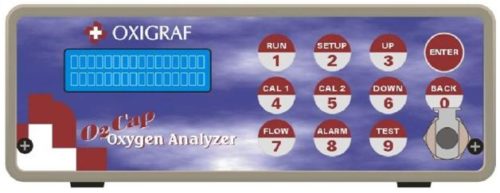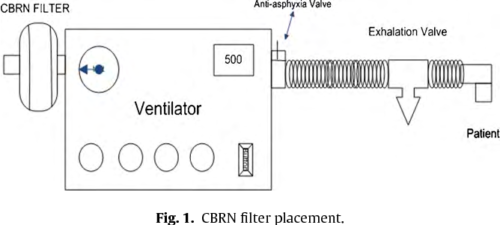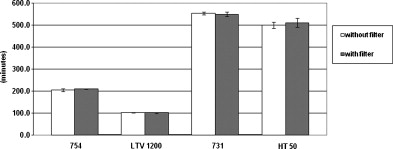Mechanical ventilators in the hot zone: Effects of a CBRN filter on patient protection and battery life
Abstract
Objective
In a contaminated environment, respiratory protection for ventilator dependent patients can be achieved by attaching a chemical, biological, radiological, or nuclear (CBRN) filter to the air intake port of a portable ventilator. We evaluated the effect of the filter on battery performance of four portable ventilators in a laboratory setting.
Methods
Each ventilator was attached to a test lung. Ventilator settings were: assist control (AC) mode, respiratory rate 35 bpm, tidal volume 450 ml, positive end-expiratory pressure (PEEP) 10 cm H2O, inspiratory time 0.8 s, and FIO2 0.21. Ventilators were operated until the battery was fully discharged. We also evaluated the ventilators’ ability to deliver all the gas through the CBRN filter and analyzed the pressures required to breathe through the anti-asphyxiation valve of a failed device.
Results
The range of battery life varied widely across different ventilator models (99.8–562.6 min). There was no significant difference in battery life (p < 0.01) when operating with or without the CBRN filter attached. Only the Impact 731 routed all inspired gases through the CBRN filter. The pressure required to breathe though the failed device was −4 cm H2O to −9 cm H2O.
Conclusions
Duration of operation from the internal battery was not altered by attachment of the CBRN filter. The use of a CBRN filter is necessary for protection of ventilator dependent patients when environmental contamination is present, although conditions exist where all gas does not pass through the filter with some ventilators under normal operating conditions.
in Resuscitation 81(9):1148-51 · September 2010
Authors: Thomas C. Blakeman (a) , Peter Toth (c), Dario Rodriquez (b), Richard D. Branson (a)
(a) University of Cincinnati Department of Surgery, Division of Trauma/Critical Care, Cincinnati, OH, United States
(b) Center for Sustainment of Trauma and Readiness Skills (CSTARS), United States Air Force, Cincinnati, OH, United States
(c) Medical Student, University of Cincinnati, Cincinnati, OH, United States










